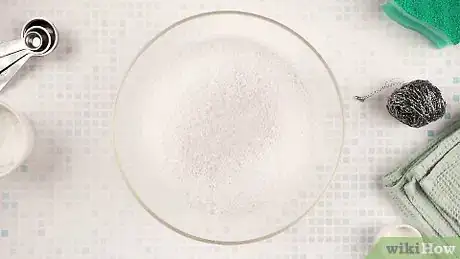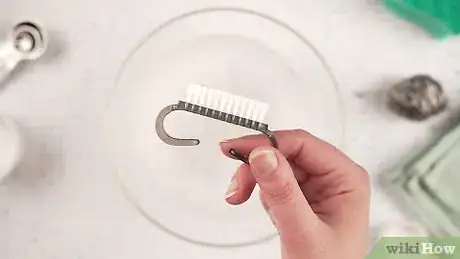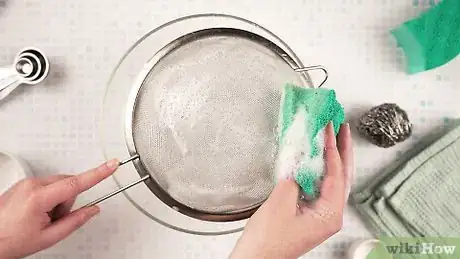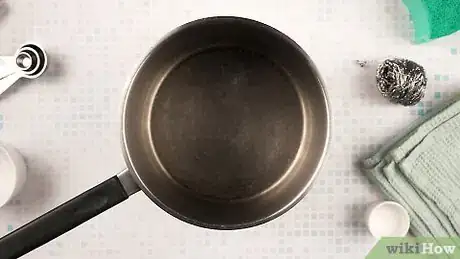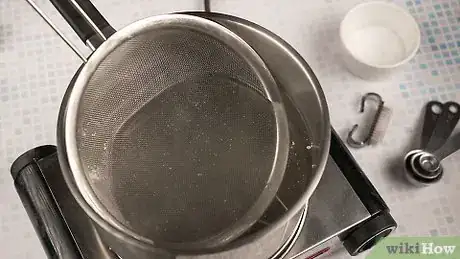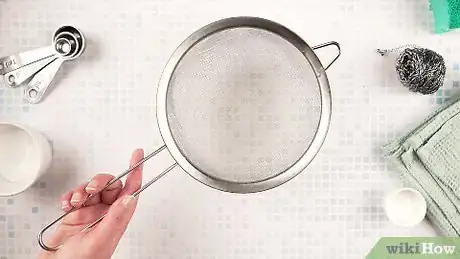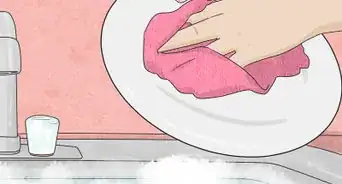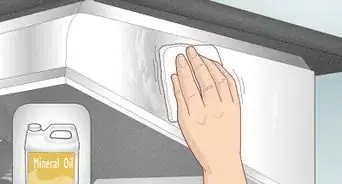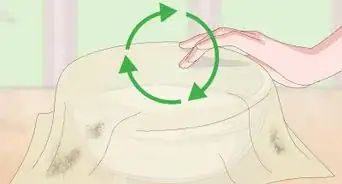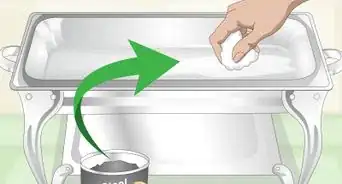X
wikiHow is a “wiki,” similar to Wikipedia, which means that many of our articles are co-written by multiple authors. To create this article, volunteer authors worked to edit and improve it over time.
The wikiHow Culinary Team also followed the article's instructions and verified that they work.
This article has been viewed 68,884 times.
Learn more...
Cleaning a sieve can be a washer-upper's worst nightmare, even 'pros' in the kitchen industry have trouble with these most holey of devices.
Steps
Method 1
Method 1 of 2:
Washing Up
-
1Prepare the washing water. As with any washing up, begin with a bowl of foamy hot water.
-
2Procure a brush of some sort, in particular one that is designed with washing up in mind.Advertisement
-
3Proceed to 'stab' at the sieve's holes with the bristles of the brush in a 'stippling' motion, dislodging any material stuck in the mesh.
-
4Rinse. Once most of the material is dislodged, rinse the foam from the sieve with cold water, this will clear any remaining material and make draining and drying simpler.
Advertisement
Method 2
Method 2 of 2:
Boiling
-
1Clean the sieve roughly by using whatever cleaning tools you regularly use.
-
2Remove the larger bits and pieces that will come off with a bit of effort.
-
3Take a boiler or a pan. Use one that is big enough to submerge the dirty parts (or most of your sieve).
-
4Fill the pan or boiler with water get it boiling.
- Keep in mind to not to use any cleaning agents in the boiling water, as they may ruin the pot or react unexpectedly to heating. Boiling water is enough to sterilize most metals, so just ordinary water will do.
-
5Submerge the sieve in the boiling water. Take care not to put any plastic parts into the water and be careful not to get scalded.
-
6Let the sieve sit in the boiling water for a little while. Let sit until all traces of food are separated from the sieve.
-
7Take it off. Full metal sieves might get quite hot, so handle with care.
Advertisement
Community Q&A
-
QuestionHow do I clean rust from a strainer?
 Community AnswerSoak it in vinegar overnight, then wipe it away with a paper towel. This should also work on a shower head or any other metal pieces.
Community AnswerSoak it in vinegar overnight, then wipe it away with a paper towel. This should also work on a shower head or any other metal pieces. -
QuestionI made juice from red currants using a slow juicer, but a lot of soft pulp followed. I poured it through a sieve and now my sieve is full of pulp in all the holes. What do I do? I tried all of the tips here.
 Community AnswerTry turning it upside down and letting the water run through the bottom so the pulp can push its way out. And it's the same thing if you have a dishwasher. Put it up side down. It really works!
Community AnswerTry turning it upside down and letting the water run through the bottom so the pulp can push its way out. And it's the same thing if you have a dishwasher. Put it up side down. It really works!
Advertisement
About This Article
Advertisement
